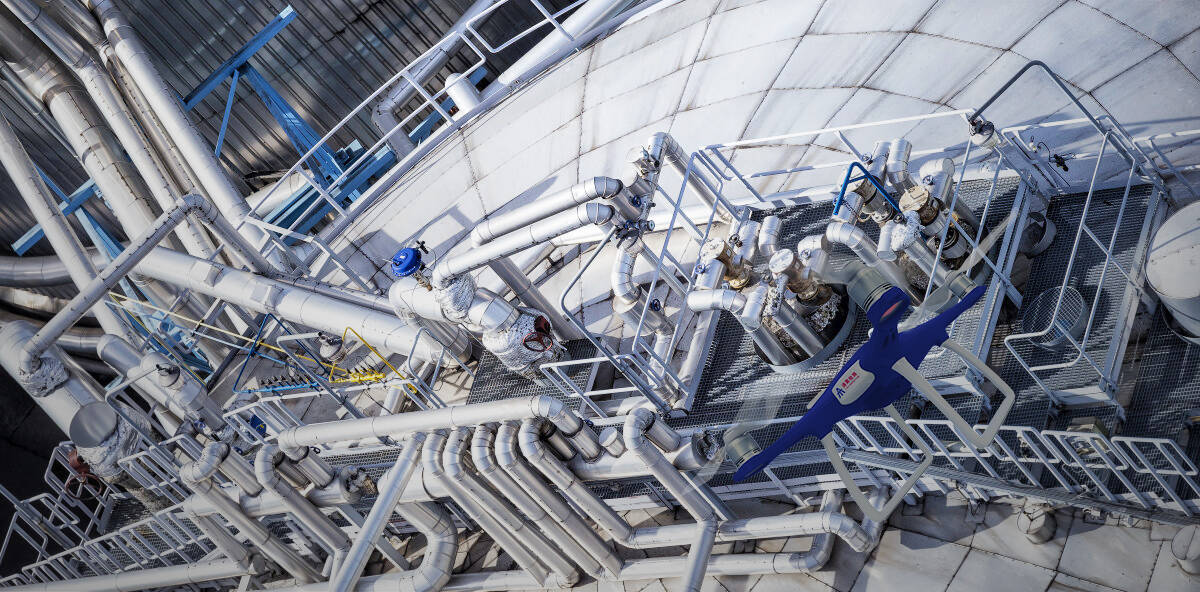










 degree of heat9
degree of heat9
From March 27 to April 1, the Chongqing Gas Mine of Southwest Oil and Gas Field Company completed the magnetic flux leakage in-line inspection of the pipeline from Yun'an 012-X16 well to Yun'an 012-1 well, and the geometry + magnetic flux leakage inspection data was downloaded completely and effectively. This marks that China Petroleum has successfully implemented the in-line inspection of natural gas pipelines with high sulfur content, small diameter, and thick-walled pipes in service for the first time, and helps the industry to take another step in the integrity management of production.
This pipeline has a total length of 16.3 kilometers, a diameter of 219 millimeters, a wall thickness of 14 millimeters, and a daily gas transmission volume of more than 400,000 cubic meters. The natural gas transported has a hydrogen sulfide content of up to 110 grams per cubic meter. Due to the characteristics of small diameter, thick pipe wall, and high sulfur content, there are risks in carrying out magnetic flux leakage in-line inspection operations on the pipeline, such as the easy blockage of detection tools, the easy loss of external defect data, and the easy corrosion of detection equipment.
The Chongqing Gas Mine carried out a systematic analysis of the adaptability of the in-line inspection, optimized the assembly method of the pig and the diameter measuring plate, carried out joint pigging and diameter measuring pigging multiple times, and judged the internal structure of the pipeline. The risk control at the detection site was strengthened, the fixed point marks along the way were encrypted, and the operation situation of the detection equipment was monitored through multiple channels by using the method of "specialized personnel to listen + equipment monitoring", to ensure that the operation risk of the detection equipment was under control. On this basis, the Chongqing Gas Mine and the detection unit jointly carried out a pilot mechanical material indoor sulfur resistance test, and conducted a comprehensive sulfur resistance treatment on the equipment to ensure that the equipment is corrosion-resistant and the detection data is intact and not damaged.
"Compared with the conventional in-line inspection of pipelines, to run intelligent detection equipment in small-diameter thick-walled pipelines and ensure that the accuracy of detection data does not downgrade, it is necessary to increase the weight of the magnetizing components, but this also increases the risk of blockage, which is a prominent technical contradiction. The project team allocates the dynamic balance of pipeline gas volume and pressure, and stabilizes the equipment speed at 1 meter per second to 1.5 meters per second. At the same time, the equipment sealing and magnetizing structure are optimized to improve the passing ability of the equipment, to ensure that the gas volume pressure, equipment operating speed, and pipeline magnetizing degree reach organic coordination and balance, and effectively prevent the downgrade of data accuracy." The technical person in charge, Zhang Chen, said.
The result of this magnetic flux leakage inspection operation provides a scientific and credible basis for the next step to carry out defect safety rectification, indicating that the in-line inspection technology in small-diameter thick-walled pipelines has achieved a new breakthrough, and laid the foundation for the company to carry out in-line inspection in special and complex pipelines such as the internal gas gathering pipelines in high-sulfur gas fields and the gas injection pipelines in gas storage facilities in the future.